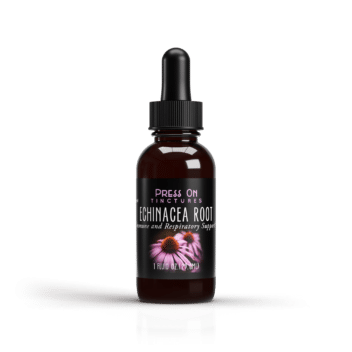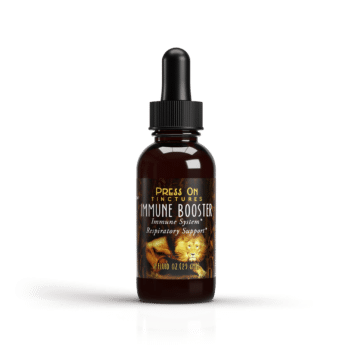Echinacea Angustifolia Herb in Herbal Medicine
Echinacea Angustifolia, often simply referred to as Echinacea, is a powerful herb that has been used in herbal medicine for centuries. This native North American plant is known for its potential health benefits and its role in supporting holistic health. In this article, we will explore the history, benefits, and uses of Echinacea Angustifolia in herbal medicine.
A Brief History of Echinacea
Echinacea has a rich history that traces back to the indigenous peoples of North America. Native American tribes such as the Plains Indians used Echinacea for a variety of medicinal purposes, including treating wounds, infections, and snakebites. They revered the plant for its healing properties and incorporated it into their traditional medicine practices.
Native American Traditions
The Plains Indians, including tribes like the Lakota and Cheyenne, were among the first to discover the healing potential of Echinacea. They used it not only for treating physical ailments but also as a spiritual remedy in rituals. The roots and leaves of the plant were often made into poultices or teas to cure a wide range of conditions, from toothaches to fevers.
European Settlers and Herbalists
In the late 1800s, Echinacea gained popularity among European settlers and herbalists. It was introduced to Europe by traveling botanists who recognized its potential benefits. During this time, it became a staple in American herbal medicine, with many practitioners using it as a tonic for overall health and vitality.
Decline and Resurgence
The use of Echinacea declined with the advent of antibiotics in the mid-20th century. However, in recent years, there has been a resurgence of interest in Echinacea as people seek natural remedies for common ailments. This renewed interest is fueled by a growing awareness of the limitations of conventional medicine and a desire for more holistic approaches to health.
Health Benefits of Echinacea
Echinacea is often celebrated for its numerous health benefits. While scientific research is ongoing, there are several key benefits associated with this remarkable herb.
Immune System Support
One of the most well-known benefits of Echinacea is its ability to support the immune system. It is believed to enhance the body’s natural defenses, making it a popular choice during the cold and flu season. Echinacea may help reduce the severity and duration of symptoms, providing relief from common respiratory infections.
Mechanisms of Action
Echinacea is thought to stimulate the activity of white blood cells, which are crucial in fighting off infections. This stimulation may enhance the body’s ability to ward off pathogens. Additionally, Echinacea may increase the production of cytokines, proteins that play a vital role in regulating immune responses.
Cold and Flu Relief
Many people turn to Echinacea at the first sign of a cold or flu. Studies suggest that Echinacea can reduce the duration of a cold by up to 1.5 days. While it may not prevent illness entirely, its use can lead to milder symptoms and quicker recovery.
Seasonal Immune Support
Taking Echinacea regularly during peak cold and flu seasons may help bolster your immune system. This practice is especially beneficial for individuals who are frequently exposed to germs, such as teachers and healthcare workers. By maintaining a strong immune defense, you can reduce your chances of falling ill.
Anti-Inflammatory Properties
Echinacea contains compounds that have anti-inflammatory effects. These properties may help alleviate symptoms of inflammatory conditions, such as arthritis and skin irritations. By reducing inflammation, Echinacea can contribute to overall wellness and comfort.
Compounds and Pathways
The anti-inflammatory effects of Echinacea are attributed to its rich profile of bioactive compounds, including alkamides and phenolic acids. These compounds interact with key pathways in the body, reducing the production of inflammatory molecules. This action helps to soothe inflamed tissues and ease discomfort.
Managing Arthritis Symptoms
For individuals with arthritis, incorporating Echinacea into their routine may provide relief from joint pain and stiffness. The herb’s ability to decrease inflammation in the joints can enhance mobility and improve quality of life. It’s a natural alternative that complements traditional arthritis treatments.
Skin Condition Relief
Echinacea’s anti-inflammatory properties are also beneficial for skin conditions such as eczema and psoriasis. Topical application can reduce redness and swelling, providing a calming effect on irritated skin. The herb’s natural compounds work to balance the skin’s inflammatory response.
Antioxidant Effects
As a source of antioxidants, Echinacea helps combat oxidative stress in the body. Antioxidants play a crucial role in neutralizing free radicals, which can damage cells and contribute to aging and disease. By incorporating Echinacea into your routine, you may support your body’s efforts to maintain optimal health.
Neutralizing Free Radicals
Free radicals are unstable molecules that can harm cells and DNA. Echinacea’s antioxidants, such as flavonoids and cichoric acid, work to stabilize these harmful molecules. By neutralizing free radicals, Echinacea helps protect the body from oxidative damage and supports cellular health.
Aging and Cellular Protection
Oxidative stress is a key factor in the aging process. By reducing oxidative damage, Echinacea may help slow down visible signs of aging, such as wrinkles and fine lines. Its protective effects extend to internal organs, contributing to overall longevity and vitality.
Disease Prevention
Regular intake of antioxidants is associated with a lower risk of chronic diseases, including heart disease and cancer. Echinacea’s antioxidant profile supports the body’s defense against these conditions by reducing oxidative stress and enhancing cellular function. It’s a proactive step towards long-term health.
Skin Health
Echinacea is also used topically to promote skin health. Its anti-inflammatory and antimicrobial properties make it an excellent choice for soothing skin irritations, such as acne, eczema, and minor wounds. Applying Echinacea-infused creams or salves can promote faster healing and reduce redness and swelling.
Topical Applications
The topical use of Echinacea can provide immediate relief for various skin issues. Whether in the form of creams, ointments, or gels, Echinacea products can be applied directly to the affected area. This targeted approach allows for concentrated benefits and faster results.
Combating Acne
Echinacea’s antimicrobial properties make it effective in combating acne-causing bacteria. By reducing bacterial presence on the skin, it helps prevent breakouts and promotes clearer skin. Its soothing properties also reduce acne-related inflammation and redness.
Healing Minor Wounds
For minor cuts and abrasions, Echinacea can aid in the healing process. Its anti-inflammatory and antimicrobial actions work together to prevent infection and encourage tissue repair. Echinacea-based salves are a natural alternative to conventional wound care products.
Uses of Echinacea in Herbal Medicine
Echinacea is available in various forms, making it easy to incorporate into your daily routine. Here are some common ways to use Echinacea in herbal medicine:
Echinacea Tea
Brewing Echinacea tea is a simple and effective way to enjoy its benefits. You can find Echinacea tea bags at health food stores or make your own by steeping dried Echinacea roots or leaves in hot water. Drinking Echinacea tea regularly may help boost your immune system and provide soothing relief from cold symptoms.
Brewing Techniques
To make a robust cup of Echinacea tea, steep the dried roots or leaves in boiling water for at least 10 minutes. This allows the beneficial compounds to be released into the water. For added flavor, consider blending Echinacea with other herbs like peppermint or ginger.
Daily Consumption
Incorporating Echinacea tea into your daily routine can be a proactive measure for maintaining wellness. A cup of Echinacea tea in the morning or evening can serve as a soothing ritual. Its mild, earthy flavor makes it an enjoyable addition to your daily diet.
Complementary Herbs
Echinacea tea can be enhanced by combining it with other immune-supporting herbs. Elderberry and ginger are popular choices that complement Echinacea’s properties. These combinations can provide a synergistic effect, amplifying the tea’s health benefits.
Echinacea Supplements
Echinacea supplements are available in capsules, tablets, and tinctures. These supplements are convenient for those who prefer a more concentrated dose of Echinacea. When selecting supplements, be sure to choose reputable brands that prioritize quality and purity.
Choosing the Right Form
When deciding on a supplement form, consider your lifestyle and preferences. Capsules and tablets offer convenience and precise dosing, while tinctures allow for customizable doses. Each form has its advantages, so select the one that best fits your needs.
Dosage Recommendations
It’s essential to follow dosage recommendations on Echinacea supplement labels. Generally, a daily dose of 300–500 mg is considered effective for immune support. However, it’s advisable to consult with a healthcare professional for personalized guidance, especially if you have underlying health conditions.
Quality and Purity
Opt for Echinacea supplements from reputable brands that conduct third-party testing for quality and purity. This ensures that you’re receiving a product that is free from contaminants and accurately labeled. Transparency in sourcing and manufacturing practices is a hallmark of trustworthy brands.
Topical Echinacea Products
For skin-related concerns, consider using topical Echinacea products. Creams, ointments, and salves infused with Echinacea can be applied directly to the skin to soothe irritations and promote healing. Always follow the product instructions for best results.
Application Guidelines
When using topical Echinacea products, it’s important to follow application guidelines for optimal results. Clean the affected area before applying the product and use it consistently as directed. This ensures that the active compounds can penetrate the skin and exert their effects.
DIY Echinacea Remedies
For those who enjoy crafting their own remedies, making a homemade Echinacea salve is an option. Combine Echinacea extract with carrier oils like coconut or olive oil, and add beeswax for consistency. This personalized approach allows you to tailor the formula to your specific needs.
Combining with Other Treatments
Topical Echinacea products can be used alongside other natural or conventional treatments. For example, they can complement a skincare routine that includes moisturizers and sunscreens. This integrative approach maximizes the benefits of each treatment modality.
Considerations and Precautions
While Echinacea is generally considered safe for most people, there are some precautions to keep in mind:
Allergies
If you are allergic to plants in the daisy family, such as ragweed or marigolds, you may be more likely to have an allergic reaction to Echinacea. Symptoms may include rash, itching, or swelling. It is advisable to perform a patch test before using Echinacea products extensively.
Pregnancy and Breastfeeding
If you are pregnant or breastfeeding, consult with a healthcare professional before using Echinacea. While there is limited research on its safety during pregnancy, caution is recommended. Your healthcare provider can offer guidance based on your individual health needs and circumstances.
Autoimmune Disorders
Individuals with autoimmune disorders should exercise caution when using Echinacea, as it may stimulate the immune system. Conditions like lupus or multiple sclerosis may be exacerbated by immune-stimulating herbs. Consulting with a healthcare provider can help determine if Echinacea is appropriate for your condition.
Drug Interactions
Echinacea may interact with certain medications, potentially altering their effects. If you are taking prescription medications, it is crucial to discuss Echinacea use with your healthcare provider. They can assess potential interactions and advise on safe usage.
Conclusion
Echinacea Angustifolia is a versatile herb with a long history of use in herbal medicine. Its potential to support the immune system, reduce inflammation, and promote skin health makes it a valuable addition to a holistic health regimen. Whether you choose to drink Echinacea tea, take supplements, or use topical products, this remarkable herb can be a valuable ally in your journey to better health.
As with any herbal remedy, it’s essential to consult with a healthcare professional before incorporating Echinacea into your routine, especially if you have underlying health conditions or are taking medications. By doing so, you can ensure that you are using Echinacea safely and effectively to support your overall well-being. With informed use, Echinacea can be a powerful tool in your health and wellness arsenal, providing natural support for a balanced and healthy life.



